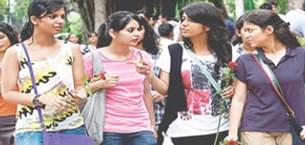
Shreyashi Pathak Study Abroad Content Specialist
Study Abroad Content Specialist | Updated On - Jul 31, 2025
Need-blind universities in the USA admit students solely based on academic merit and achievements, disregarding financial status. Over 100 U.S. institutions practice need-blind admissions, with 8 top universities—including Harvard, MIT, and Yale—offering full financial aid to all admitted students, including internationals. These policies foster diversity and ensure talented students from all backgrounds access quality education. For Indian students, this means competing on performance rather than affordability. However, over 70% of need-blind universities meet full financial needs only for U.S. citizens or residents, making international admissions competitive yet impactful.
Also Read: Scholarships to Study Abroad
What Are Need-Blind Colleges in the USA?
Need-blind colleges are institutions that do not consider a student’s financial situation during the admission process. These universities evaluate applications based on non-financial factors, such as academic performance, essays, transcripts, and recommendation letters.
Key Features of Need-Blind Colleges:
- Merit-Based Admissions: Admissions are decided solely on academic achievements and extracurricular excellence, ensuring fairness.
- Post-Acceptance Financial Aid: While finances are excluded from admissions decisions, students must still submit documents like the FAFSA, CSS Profile, or university-specific forms for financial aid assessment.
- Full Financial Need Coverage: Many need-blind colleges aim to meet 100% of demonstrated financial need, creating an equal opportunity for students regardless of economic background.
The objective is to prioritize merit over financial capability, fostering diversity and ensuring access to quality education for all deserving students.
Key Benefits to Apply for Need-Blind Universities in the USA
Here is the required list of key benefits listed below to apply for Need-blind universities in USA for Indian students:
- Equal Opportunity: As per the need-blind admission guidelines, an applicant’s financial status won’t be a concern to pay a tuition fee during admission time. This means all students have a chance to attain their educational goals and are prevented from paying tuition and other charges.
- Full Financial Aid: Most need-blind universities also have a full-need pledge which implies that those institutions will offer full financial aid to admitted students, including non-resident or Indian students.
- Competitive Admissions: Since need-blind universities have many applicants, they are also very selective. As a result, admission to such institutions may be very competitive.
- Diverse Student Body: This is because, as admission procedures do not consider students' ability to pay, blind universities can attract students from all parts of society.
Successful need Blind admission provides the Indian student with a level playing field in the process of admission to any first-rate university in the United States and the possibility of having influential financial aid.
List of Need-Blind Universities in USA
Currently, in the USA, about 100 colleges and 15 Universities practice need-blind admission.This means they don't look at whether applicants can pay tuition when deciding whom to admit. However, only a few of these schools also fully meet the financial needs of all accepted students, including those from other countries, without asking them to take out loans.
Need-Blind Colleges for Indian Students
The following 8 universities are need-blind for all applicants and meet the full demonstrated financial need of all admitted students:
- Amherst College
- Bowdoin College
- Brown University
- Dartmouth College
- Harvard University
- Massachusetts Institute of Technology (MIT)
- Princeton University
- Yale University
Need-Blind for Resident/Domestic Applicants in USA
In addition, a number of other universities practice need-blind admission for domestic/resident applicants but are need-aware for international students. However, they still meet the full demonstrated financial need of all admitted students, including international students, though the aid package may include loans for international students. These need-blind universities for international students include:
- College of William & Mary
- University of Michigan (for in-state students only)
- University of North Carolina at Chapel Hill
- University of Notre Dame
- University of Pennsylvania (also need-blind for Mexican and Canadian students)
- University of Richmond (need-aware for transfer students)
- University of Southern California
- University of Virginia
- University of Wisconsin, Madison (only in-state Pell Grant recipients have full need met)
- Vanderbilt University (need-aware for waitlisted students)
- Vassar College (need-aware for transfer students)
- Washington University in St. Louis (need-aware for transfer students)
- Wellesley College
- Williams College
All Need Blind Admission Universities in USA
Many other top universities in the USA, including public institutions, use a "need-aware" admissions policy, where financial need is considered as a factor in the admissions process. Here is a required list of all need Blind Admission Universities, listed below:
| Category | University |
| Need-Blind Admission with Full-Need Financial Aid | Massachusetts Institute of Technology (MIT) |
| Harvard University | |
| Princeton University | |
| Yale University | |
| Amherst College | |
| Curtis Institute of Music | |
| Need-Blind Admission with Partial Financial Aid | Vanderbilt University |
| Dartmouth College | |
| University of Pennsylvania | |
| Brown University | |
| Columbia University | |
| Bowdoin College | |
| University of Chicago | |
| Davidson College | |
| Grinnell College | |
| Pomona College | |
| Claremont McKenna College | |
| Soka University of America |
Note: The key differences are that the universities in the first category (MIT, Harvard, Princeton, etc.) offer full financial aid to meet 100% of a student's demonstrated financial need, while the second group may only provide partial aid.
Also Check: Cost of studying in USA
Admission Process at Need-Blind Universities in USA
The selection process at need-blind universities in the USA depends on each university’s admission requirements. Since most need-blind universities are top-ranking, their admissions are highly competitive. The key points about the selection cum admission process of need-blind US universities are:
- Fairness and Equal Opportunity: The goal is to give all candidates equal opportunities regardless of their financial background.
- Merit-Based Decisions: Admission decisions are based only on academic achievements and personal merits, not on the ability to pay tuition and fees.
- Financial Need: Showing financial need does not hurt your chances of admission since this information is not used in the decision-making process.
- Competitiveness: These universities are very competitive, with low acceptance rates. Applicants should apply to a mix of reach, target, and safety schools.
- Strong Application: It then becomes important for students to have good grades and results, good test scores, and other associated extra activities as the intakes at these colleges are very competitive.
- Financial Aid: The student’s financial need will be met by the university through the award of financial aid that will meet the full need once in the university. This mainly consists of government grants, scholarships, and work-study provisions.
The university does not consider an applicant's financial situation when deciding whether to offer them admission.
|
Here are some important points about scholarships for Indian students for USA:
|
Also Read: Top Program for Indian students in USA
A need-blind university in the USA is one where a student’s financial ability does not influence the decision to admit or reject a candidate. This policy relates strictly to academics and achievements, encouraging meritorious access to the institution and eliminating the issue of fees as a factor that determines admission. Still, these universities boast extensive need-based financial aid schemes that help cover the full cost of tuition of their students, but this is not universal. Currently, Harvard, MIT, and Princeton admit international students on a need-blind basis and meet the full needs of all admitted students.
FAQs
Ques: What does the term need-blind universities in the USA mean?
Ans: A need blind university in the USA is a university that lacks regard for a candidate's ability to pay fees when enrolling a candidate. This implies that the students are admitted to these very competitive universities having very selectively enriched academic and personal accomplished profiles.
Ques: Which universities in the USA are need-blind for all applicants, including international students?
Ans: Answer: Below is a list of some of the famous colleges that enroll students regardless of their ability to pay, and meet their financial needs in full: Amherst College, Bowdoin College, Brown University, Dartmouth College, Harvard University, MIT or Massachusetts Institute of Technology, Princeton University, Yale University.
Ques: Do US need-blind universities ensure that every admitted student receives financial aid?
Ans: While many need-blind schools and universities make an effort to meet all of their student’s financial needs, this does not guarantee that this will be the case for every applicant and enrollee. Few colleges offer full scholarships to international students who have comparable strong academic and athletic records.
Ques: What is the benefit of applying to a need-blind university in USA?
Ans: However, applying to a need-blind university in the USA has the advantage of being privileged to be considered on the merit, or lack thereof, of the skills acquired in one’s academics. These universities accommodate every student irrespective of their financial status, and most of them offer a lot of scholarships to highly qualified students despite their financial status.
Ques: How competitive are admissions at need-blind universities in USA?
Ans: Competitiveness is high for need-blind institutions in the USA given the fact that most of the institutions are ranked among the best while the number of aspirants is very large. The students require good academic performance, good test scores, and participation in co-curricular activities so as to be on par and fundamentally so as to be in those universities.





1720691033.png?tr=w-305,h-145,c-force?h=40&w=40&mode=stretch)









1691151352.png?tr=w-305,h-145,c-force?h=175&w=350&mode=stretch)

1691402920.png?tr=w-305,h-145,c-force?h=175&w=350&mode=stretch)
1691135397.png?tr=w-305,h-145,c-force?h=175&w=350&mode=stretch)




Comments